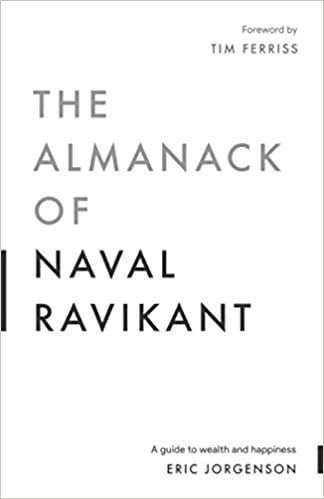This post is part of the 📖 The Almanack of Naval Ravikant series.
Today, I am reading Collect Mental Models section of the Wealth: How to get rich without getting lucky chapter from the book, The Almanack of Naval Ravikant: A Guide to Wealth and Happiness written by Author, Jack Butcher.
Getting rich is not just about luck; happiness is not just a trait we are born with. These aspirations may seem out of reach, but building wealth and being happy are skills we can learn.
So what are these skills, and how do we learn them? What are the principles that should guide our efforts? What does progress really look like?
The Book The Almanack of Naval Ravikant: A Guide to Wealth and Happiness is a collection of Naval’s wisdom and experience from the last ten years, shared as a curation of his most insightful interviews and poignant reflections.
Yesterday, I read Shed Your Identity to See Reality section from the Wealth: How to get rich without getting lucky chapter.
Part I
Wealth: How to get rich without getting lucky
Collect Mental Models
During decision-making, the brain is a memory prediction machine.
A lousy way to make memory prediction is “X happened in the past; therefore, X will happen in the future.” It’s too based on specific circumstances. What you want is principles. You want mental models.
The best mental models I have found came through evolution, game theory, and Charlie Munger. He has tons and tons of great mental models.
Author and trader Nassim Taleb have great mental models. Benjamin Franklin had great mental models.
The author explained the following mental models:
- Evolution
- Inversion
- Complexity Theory
- Economics
- Principle-Agent Problem
- Compound Interest
- Basic Math
- Black Swans
- Calculus
- Falsifiability
- If you can’t decide, the answer is no.
Run Uphill
Simple heuristic: If you’re evenly split on a difficult decision, take the path more painful in the short term.
Principle-Agent Problem Julius Caesar famously said, “If you want it done, then go. And if not, then send.” He meant that if you want it done right, you have to go yourself and do it.
If you have two choices to make, and they’re relatively equal choices, take the path more complicated and more painful in the short term.
By definition, if the two are even, and one has short-term pain, that path has long-term gain associated. With the law of compound interest, the long-term gain is what you want to go toward. Your brain is overvaluing the side with short-term happiness and trying to avoid the one with short-term pain.
What are the most efficient ways to build new mental models?
Read a lot—just read.
Key Takeaways
Evolution, thermodynamics, information theory, and complexity have explanatory and predictive power in many aspects of life.
We are fundamentally ignorant and very, very bad at predicting the future.
You’re biologically not built to realize how many choices there are. Historically, we’ve all evolved in tribes of 150 people.
Summary
If you have two choices to make, and they’re relatively equal choices, take the path more difficult and more painful in the short term.
Most of the gains in life come from suffering in the short term so that you can get paid in the long term.
Generally, you want to lean into things with short-term pain but long-term gain.
Reading science, math, and philosophy one hour per day will likely put you at the upper echelon of human success within seven years.
That’s it for today. Tomorrow, we will read the Learn To Love To Read section.
Author(s): Eric Jorgenson
Part 14 of 33 in the 📖 The Almanack of Naval Ravikant book series.
Series Start | The Almanack of Naval Ravikant: A Guide to Wealth and Happiness - Day 13 | The Almanack of Naval Ravikant: A Guide to Wealth and Happiness - Day 15
